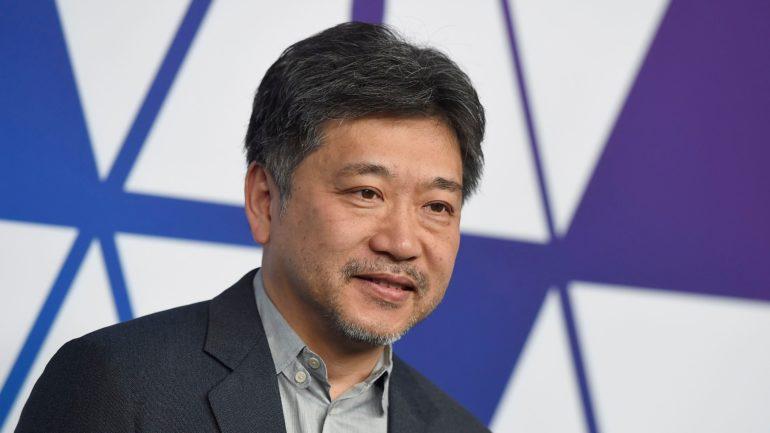‘Shoplifters’ Director Hirokazu Kore-eda Joins Establishment With Japan Academy Awards
By Mark Schilling
LOS ANGELES (Variety.com) – Once considered as a Japanese industry outsider, Hirokazu Kore-eda has thoroughly conquered that insider bastion, the Japan Academy Prizes, scooping eight trophies for his dark family drama “Shoplifters” at the 42nd annual award ceremony on March 1. Among them were best picture and best director honors – with the latter Kore-eda’s second in a row.
Administered by the Japan Academy Film Prize Association, the Japan Academy Prizes have been called Japan’s Oscars, but they have struggled to attain a similar clout and prestige. One reason is the perception that they are mostly parceled out by the local majors for the local majors. Celebrated auteur Takeshi Kitano told an audience at the 2014 Tokyo International Film Festival that “Toho, Toei, Shochiku and sometimes Nikkatsu…pass (the awards) around.”
“” was released in Japan by Gaga, not considered a major distributor of Japanese films but still a potent industry force with a long list of mainly foreign hits and award winners, including “Whiplash,” “Twelve Years a Slave,” “The Artist” and “The King’s Speech.” The company has distributed other Kore-eda films “I Wish” (2011), “Like Father, Like Son” (2013), “After the Storm” (2016) and, in collaboration with Toho, “The Third Murder” (2017.
Koreeda did not come to the attention of the Academy until “Like Father, Like Son,” his first commercial hit with earnings of $28.5 million. The film received four nominations, including best picture and best director, but no prizes.
Since their start in 1978, the Japan Academy prizes have tended to favor commercial winners over critical favorites. Among the best picture honorees are hits: WWII drama “The Eternal Zero” (2014); the funeral drama “Departures” (2008); and the nostalgic tearjerker “Always” (2005). All were distributed by Japan’s major studios.
“Shoplifters” also enjoyed a long prosperous run, helped by winning the Cannes Palme d’Or shortly before its June 2, 2018 Japan release. The film finished with $41 million – the fourth-highest total for a local film last year and a career peak for Koreeda.
At the awards ceremony, Kore-eda said: ”I have been asked to make some tough proposals for the Japan Academy Prizes.” But when host Toshiyuki Nishida urged him to “state your opinions without reserve,“ Kore-eda said he had only “one positive proposal”: Create a Japan Academy Prize for costume design. When Nishida responded “There’s no prize for hair and makeup either,” Kore-eda concurred: “That’s another category to add.” The largely industry audience applauded warmly.
Whether or not the Academy takes his suggestions seriously, Kore-eda has ascended to a height of critical and commercial success seldom attained among makers of live-action films since Japanese cinema’s postwar Golden Era, when Akira Kurosawa was both filling theaters and scooping prizes.
Praise in Japan for “Shoplifters” has hardly been universal, however. Japanese netizens flooded right-leaning message boards with complaints that the film, about an ersatz family that lives by petty crimes, sullied Japan’s image. Kore-eda was also criticized for not accepting an invite from Japan’s culture minister to celebrate the film’s Cannes win, especially after Kore-eda commented that he did not want to be perceived as cooperating with the government. Prime Minister Shinzo Abe responding by not publicly congratulating Kore-eda for his Palme d’Or.
None of this had any noticeable effect on “Shoplifters” – or Kore-eda’s next project, “The Truth,” a drama starring Catherine Deneuve and Juliette Binoche that is another probable Cannes invitee. And the Japan Academy? Given its love for a certified winner, Kore-eda can hope for more of their nominations, if not perhaps for his non-Japanese film. A best foreign film prize going to a Japanese director is a bridge the Japan Academy has yet to cross.

